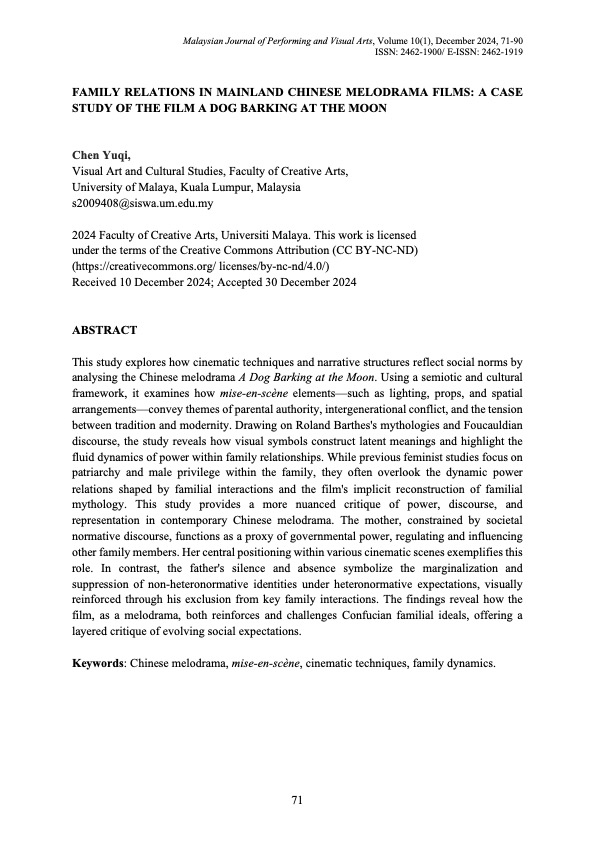FAMILY RELATIONS IN MAINLAND CHINESE MELODRAMA FILMS: A CASE STUDY OF THE FILM A DOG BARKING AT THE MOON
Keywords:
Chinese melodrama, mise-en-scène, cinematic techniques, family dynamics.Abstract
This study explores how cinematic techniques and narrative structures reflect social norms by analysing the Chinese melodrama A Dog Barking at the Moon. Using a semiotic and cultural framework, it examines how mise-en-scène elements—such as lighting, props, and spatial arrangements—convey themes of parental authority, intergenerational conflict, and the tension between tradition and modernity. Drawing on Roland Barthes's mythologies and Foucauldian discourse, the study reveals how visual symbols construct latent meanings and highlight the fluid dynamics of power within family relationships. While previous feminist studies focus on patriarchy and male privilege within the family, they often overlook the dynamic power relations shaped by familial interactions and the film's implicit reconstruction of familial mythology. This study provides a more nuanced critique of power, discourse, and representation in contemporary Chinese melodrama. The mother, constrained by societal normative discourse, functions as a proxy of governmental power, regulating and influencing other family members. Her central positioning within various cinematic scenes exemplifies this role. In contrast, the father's silence and absence symbolize the marginalization and suppression of non-heteronormative identities under heteronormative expectations, visually reinforced through his exclusion from key family interactions. The findings reveal how the film, as a melodrama, both reinforces and challenges Confucian familial ideals, offering a layered critique of evolving social expectations.
Downloads

Downloads
Published
Issue
Section
License
Copyright (c) 2024 Malaysian Journal of Performing and Visual Arts

This work is licensed under a Creative Commons Attribution-NonCommercial-NoDerivatives 4.0 International License.

